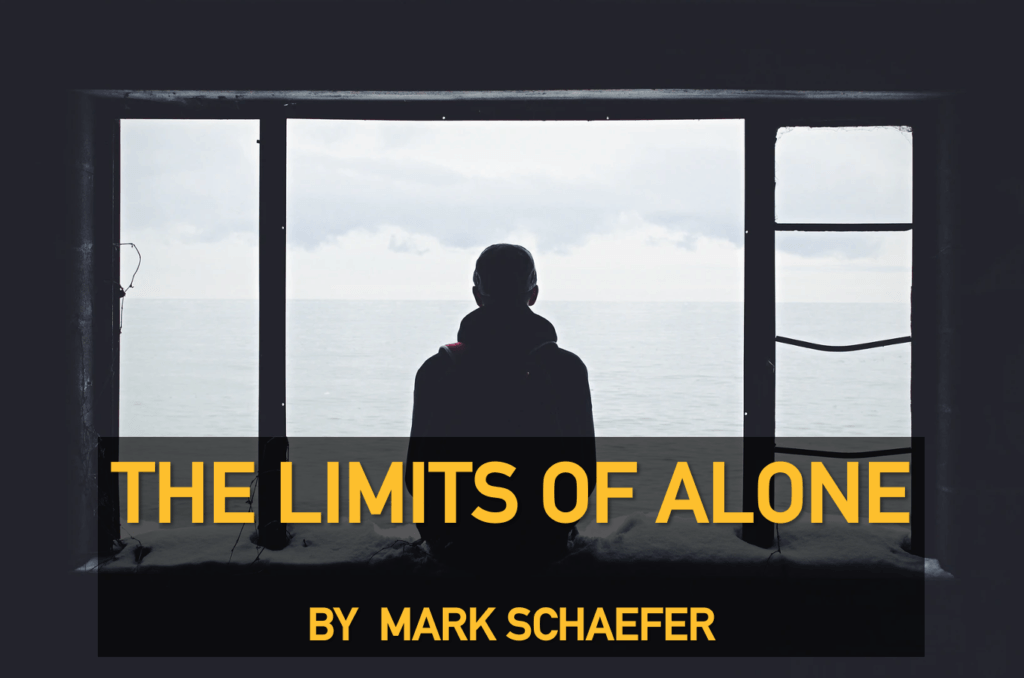
I think we are reaching the limits of alone in this coronavirus crisis and it took a commercial from Apple to bring this home to me.
There is a new ad from the tech giant called “Creativity Goes On” and it has earned a lot of attention and acclaim. It even has Oprah in it. You can see it here:
If you can’t see the video above, you can view it on YouTube: Creativity Goes On
This ad is touching and inspiring, but it also made me deeply sad.
The scenes of children playing music, chess, and dancing by themselves in front of a computer screen were just so … lonely.
I know this crisis is temporary (right???) but for me, the Apple ad paints a picture of cold isolation more than hope. It seems sad to see a little girl do a dance pose by herself in front of a computer screen without her friends, her teacher, and the ice cream reward with mom or dad after class.
The point of this isn’t to criticize Apple or the ad, it’s to point out the limits of alone in an increasingly online world. I, for one, am getting sick of sitting in front of a computer screen as a lifeline. I miss real people.
I sense I’m not alone in this sentiment and it implies a trend to watch as we come out of this crisis.
The limits of alone
One of the most common predictions about the “new normal” is that people will adopt many of the work-from-home, school-from-home, locked-in survival practices.
Undoubtedly that is true. We are in an extended period of turbulence where many consumer and business habits will indeed change. But I also think we have a deep need for personal communion with others that will transcend this trend over time.
At the time I am writing this post, every single meeting and conference in my world has gone to an online format. I am living in a world of endless talking heads and I’m over it.
I find little joy in speaking to a little green dot on my computer instead of a roomful of excited and cheering people. I miss the amazing conversations that happen at breaks in my college classes and the long lunches with friends that inspire so many new ideas.
Despite the projections of permanent workplace changes, there are many benefits to real connection. In the long-term, the innate need for human connection will transcend the convenience of online collaboration.
Our customers are feeling this too …
Even weak links matter
I was recently on a Skype call with a friend in India. He said the lock-down there is so strict you can get arrested for being outside. This is an extreme example of enforced loneliness! Even if you’re with your family, you can still feel lonely.
A growing body of research suggests that there are surprisingly powerful benefits to connecting with casual acquaintances — relationships that sociologists call “weak ties.”
To be sure, our friends, family, and coworkers — our strong ties — support us when we’re feeling down and make us feel appreciated.
But weak ties can do these things too: People get social support from their hairdresser. We feel seen when a server smiles upon seeing us and knows what our “usual” is. In fact, our interactions with weak ties tend to go especially smoothly, since we are often on our best behavior with people we don’t know well. Weak-tie relationships give us short, low-cost, informal interactions, which often provide new information and social variety.
This is a reality most people are not even aware of. But at the end of this isolation, we will be hungry to re-establish these weak relational links.
Consumers waking up
I recently wrote about an important insight — 75 percent of Wuhan’s residents are not leaving their homes even after the economy has been “re-opened” for two months.
This implies that a big part of marketing in the post-COVID future will be to remind people of what life was like before the lock-down. In essence, we will have to wake them up from their consumer slumber and perhaps even a newly-embedded psychology of fear.
A common theme during this crisis has been “Alone, Together.” But … we’re still alone!
I think many people feel the talking-head Zoom weariness that I do, but we might have to remind them of their old habits and the new possibilities of a world no longer constrained by the limits of alone!
As we plan for the post-crisis phase, how will you wake consumers up from lock-down habits? Will it take time for you to wake up or are you ready to meet me in real life again as soon as possible?